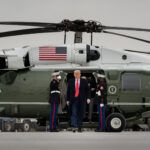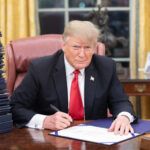What the 2010 elections mean for national security issues
By John Isaacs | November 29, 2010
These results will likely produce gridlock in Congress for the next two years on most domestic issues — but national security issues might produce mixed results.
It goes without saying that the mid-term elections were a disaster for Democrats: Republicans took control of the House of Representatives — winning over 60 seats — and also picked up six Senate seats. The Senate will remain in Democratic hands, while the House will have new leadership and committee chairs.
These results will likely produce gridlock in Congress for the next two years on most domestic issues — but national security issues might produce mixed results.
Shortly before the election, Presumptive House Speaker John Boehner, Republican of Ohio, said: “This is not a time for compromise.” Senate Republican leader Mitch McConnell added: “The single most important thing we want to achieve is for President Obama to be a one-term president.”
These comments do not suggest a path to bipartisan cooperation.
However, while the campaign locked in politicians’ views on budget deficits and health care, there was minimal debate on national security issues. This could signal that there might be more latitude for negotiations on issues such as nuclear weapons reductions and the wars in Afghanistan and Iraq.
New START. The issue of nuclear reductions was not a key issue during the campaign; largely, candidates touched upon the topic of New START only when presented with specific questions about the treaty. Thus, there seemed to be some confidence that the Senate would vote on the agreement during the lame-duck in the post-election session at the end of 2010.
Certainly, Arizona Sen. John Kyl dashed any optimism on November 16, when he released a statement that he did not think New START could be considered during the session. Kyl holds the key to New START in his hands. A few days later, newly-elected senators got on board and wrote a letter asking for treaty consideration to be delayed until they take office next year.
But all is not lost: The Obama administration and Senate Foreign Relations Committee Chairman John Kerry are negotiating with Kyl, and there still may be a vote in December.
Comprehensive Nuclear Test Ban Treaty (CTBT). Eight Republican senators are needed for Senate approval of New START; 14 will be needed for the CTBT. Moreover, Senator Kyl considers New START to be “relatively benign”, and he has indicated that the CTBT is as terrible today as it was in 1999, when he led the opposition.
In President Barack Obama’s April 2009 Prague speech on nuclear weapons, he promised a new effort to ratify the test ban treaty, but it clearly is going to be a battle.
Iran. There has been talk that Republicans will press for a harder line on Iran. On November 6, South Carolina Sen. Lindsey Graham expressed strong support for military strikes on Iran. Though it is unlikely to endorse war with Iran, Congress, as it has in the past two years, is likely to continue supporting strict policies against Iran.
In early 2010, Congress passed an Iran sanctions bill with those in opposition being only eight representatives and no senators. We can expect more of the same kind of votes over the next two years.
Cutting military spending. During their election campaigns, the new Republicans virtually unanimously called for reductions in federal budget spending. While most of that fire was trained on domestic spending and entitlements such as Social Security and Medicare, there is newfound Republican inclination to consider cuts in the Pentagon budget as well. Oklahoma Sen. Tom Coburn writes that Republicans “should resist pressure to take all defense spending cuts off the table. Newly elected Sen. Rand Paul of Kentucky had the courage to say he’d go after defense waste during his campaign, and I look forward to working with him.” Senator-elect Mark Kirk, Republican of Illinois, has also added to this theme, saying “I back spending restraint across the board,” including the Pentagon.
Support for defense cuts gained momentum in November, when the National Commission on Fiscal Responsibility and Reform released a draft report that called upon the Pentagon to make $100 billion reductions in the 2015 Fiscal Year. The end result, however, is that while there will be more talk about cuts in the Pentagon budget, it is still likely to escape with little more than a few scrapes and bruises and nothing like the $100 billion suggested in the draft report.
Non-proliferation funding. Enthusiastic cuts in the federal budget might threaten President Obama’s proposed increased spending to secure and safeguard nuclear weapons and materials. If Congress makes across-the-board reductions to match levels in previous years, as is likely, the Defense Department and Energy Department nuclear safeguard programs are likely to suffer.
War in Afghanistan. Opposition to US troops in Afghanistan has been bubbling in Congress, with opposition led by Massachusetts Democrat Rep. Jim McGovern and outgoing Wisconsin Democrat Sen. Russ Feingold. Twelve House Republicans and 102 Democrats voted against Iraq and Afghanistan war funding in a July 2010 vote (the Senate had no vote). Opposition is likely to gain momentum, particularly with news that the Pentagon wants to postpone major troop reductions until 2014. While national security hardliners such as Arizona Sen. John McCain and Senator Graham advocate that the Obama administration should abandon any plans to withdraw troops in 2011, some of the new senators have little enthusiasm for the war, particularly new Kentucky Sen. Rand Paul. But Congress has always had great difficulty in building a majority for bringing American troops home from any conflict (see Vietnam, see Iraq), and it is difficult to see the legislative branch being more successful this time.
Conclusion. Whatever the challenges from Congress on national security issues, it is important to remember that a president has more freedom and flexibility on foreign policy issues in which majority votes from the House and Senate are not always required. While New START remains in limbo before the Senate, President Obama made progress on nuclear issues earlier this year with the UN Security Council endorsement of his nuclear program, the April Nuclear Summit in Washington, DC, the successful conclusion to the Nuclear Non-Proliferation Treaty Review Conference, and an updated Nuclear Posture Review.
In late November, the president attended the NATO Lisbon Summit, which put forward a new Strategic Concept that endorsed European-wide missile defense. This is an example of a presidential initiative without a Congressional anchor. When it comes to implementing change, President Obama might find more success abroad rather than at home.
Together, we make the world safer.
The Bulletin elevates expert voices above the noise. But as an independent nonprofit organization, our operations depend on the support of readers like you. Help us continue to deliver quality journalism that holds leaders accountable. Your support of our work at any level is important. In return, we promise our coverage will be understandable, influential, vigilant, solution-oriented, and fair-minded. Together we can make a difference.
Topics: Opinion















